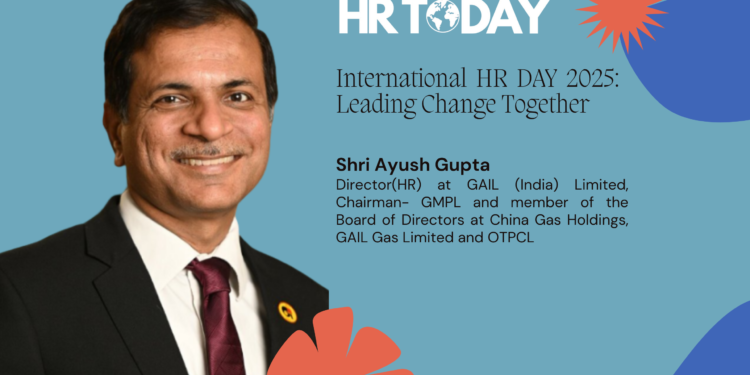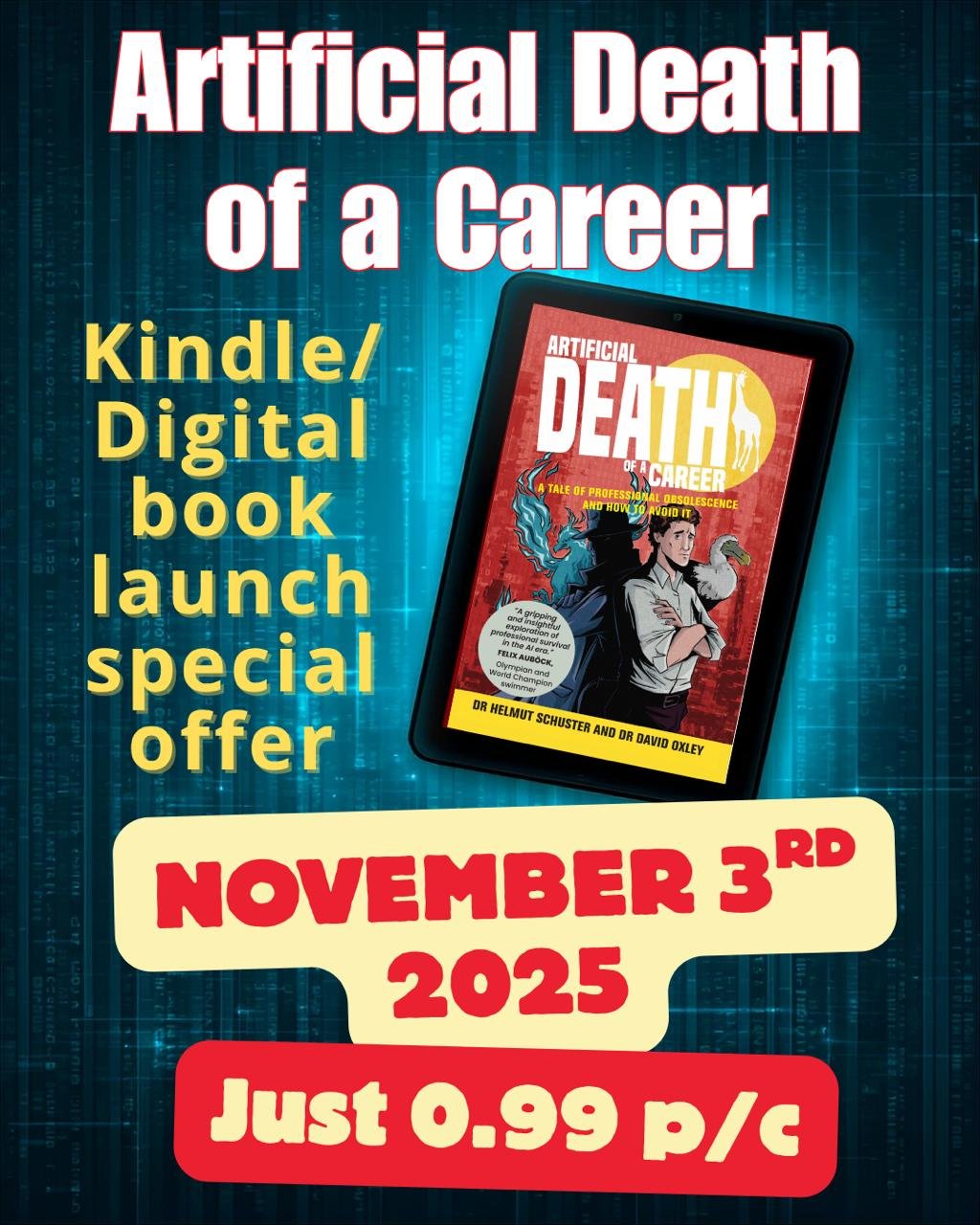As the energy sector undergoes sweeping transformation, Human Resources is no longer just a support function—it is emerging as a strategic force at the center of innovation, sustainability, and national development. In this special HR Day message, Shri Ayush Gupta, Director (HR) at GAIL (India) Limited, offers a compelling vision of HR’s evolving role in shaping purpose-led, resilient, and inclusive organizations.
Question 1: How do you see Role of HR Evolving in next five to ten years?
Over the past decade, Human Resources (HR) has evolved from an administrative function to a strategic pillar of organizational success. This transformation will accelerate in the next five to ten years, driven by technology, evolving workforce expectations, and the need for agility in both public and private sectors.
In public sector enterprises, HR will be key to future readiness—going beyond personnel management to shaping organizational culture, workforce agility, and digital transformation. The deep integration of Artificial Intelligence, data analytics, and cloud-based platforms will revolutionize talent management. Predictive analytics will help plan for skill gaps, while digital learning ecosystems will enable continuous, personalized employee development. HR will become an insight-driven function that fuels strategic decisions.
The workforce itself is changing—becoming more diverse, mobile, and purpose-driven. HR must adapt by fostering inclusivity, enabling hybrid work models, and prioritizing well-being. In the public sector, attracting and retaining young talent will require an employee value proposition that extends beyond job security, offering growth, flexibility, and a strong sense of purpose.
Additionally, HR will drive organizational change and sustainability, embedding Environmental, Social, and Governance (ESG) principles into corporate DNA through ethical hiring, diversity initiatives, and green workplace policies. The HR function of the future will be more empathetic, agile, and aligned with sustainable development goals.
Ultimately, HR’s role in the next decade will be transformative, demanding new skills, mindsets, and a renewed commitment to people. The road ahead is challenging yet exciting, and HR, with its evolving mandate, is poised to rise to the occasion.
Question 2:- What are the most pressing Talent Challenge you foresee in next 5-10 years in Oil & Gas and Energy Sector?
As the global energy sector undergoes a profound transformation, the talent landscape is also shifting, presenting complex challenges. Over the next five to ten years, companies in oil, gas, and energy must proactively address these challenges to remain competitive and relevant.
The transition toward cleaner, smarter energy requires new skillsets. Expertise in renewable energy systems, battery storage, carbon capture, AI-driven analytics, and digital operations will become core to business success. However, these skills are currently scarce, especially within traditional oil and gas talent pools. Bridging this gap through aggressive upskilling, cross-sector hiring, and academic partnerships will be a top priority.
Another challenge is the aging workforce and knowledge drain. Many public-sector energy companies face a demographic shift, with a large portion of employees nearing retirement, taking with them decades of operational experience. Preserving critical knowledge through digitization and mentoring while creating structured pathways for younger talent to take on leadership roles early is crucial.
Attracting the next generation is also essential. The oil and gas industry is often perceived as legacy-bound or environmentally regressive, making it less appealing to younger professionals. To attract this workforce, the sector must rebrand itself as future-focused, purpose-driven, and innovation-led. Offering meaningful work, hybrid models, and growth-oriented career paths will be key.
Integrating diverse talent pools is another priority. Historically, the energy sector has struggled with diversity, particularly in technical and leadership roles. Removing barriers to entry, fostering inclusive hiring frameworks, and empowering diverse voices will build a stronger and more representative workforce.
Finally, workforce agility and resilience will be vital in a constantly evolving industry. Technological disruption and geopolitical shifts demand teams that can adapt quickly and thrive in digitally integrated environments. HR must foster resilience through continuous skill-building, flexible structures, and psychological safety.
Ultimately, the energy sector’s talent challenge is about alignment, adaptability, and aspiration. By aligning strategies with the energy transition, building adaptable learning ecosystems, and inspiring a sustainable, digital, and inclusive future, these challenges can be transformed into engines of growth and innovation. The road ahead is demanding but filled with opportunity, and with foresight and action, the sector can drive meaningful change.
Question 3:- Your Message to HR Professionals on the occasion of HR DAY?
Across industries, Human Resources has traditionally been seen as a support function—handling hiring, compliance, and workforce management. However, as we celebrate HR Day amid rapid transformation, it is clear that HR now plays a central strategic role.
Today, HR is at the core of organizational success, especially in the public sector, where institutions like GAIL (India) Limited contribute not only to operational excellence but also to national development. The role of HR has expanded beyond managing people to enabling purpose, fostering agility, and shaping the future of work.
Over the next decade, public sector energy companies will face challenges such as transitioning to cleaner energy, integrating digital technologies, adhering to global environmental mandates, and meeting the expectations of a new workforce. At their heart, these are people challenges—making HR indispensable.
The future workforce must be digital, diverse, and purpose-driven. Building such a workforce requires planning, including anticipating future skills in hydrogen, renewables, AI, and sustainability, developing internal capabilities, and creating continuous learning platforms. At GAIL, HR is already leading this shift through digital skilling, employee engagement, and leadership development.
The demographic shift in India’s workforce is another key challenge. As experienced professionals retire, younger employees bring fresh perspectives but seek flexibility, transparency, and impact. To retain them, HR must reimagine policies—focusing on hybrid work models, wellness initiatives, inclusive leadership pipelines, and tech-enabled HR services.
HR in the public sector carries an even greater responsibility—shaping corporate citizenship, fostering values-driven work cultures, and embedding sustainability, ethical governance, and social equity into HR practices.
As we mark HR Day, it is clear that true transformation is driven by people who believe in the power of people. No doubt the technology and especially AI will take workplaces to another level but my ingredients for success to HR professional will be 4Cs i.e Connect, Commitment, Care & Compassion with which the organizations will not only remain competitive but also deeply human.
Read Also : HR Is Not a Support Function—It’s the CEO’s Most Powerful Growth Engine
From Support to Strategy: HR’s Decisive Shift Toward Leading the Future of Work
From Gatekeeping to Gateway Building: Transforming How Organisations Create Access













